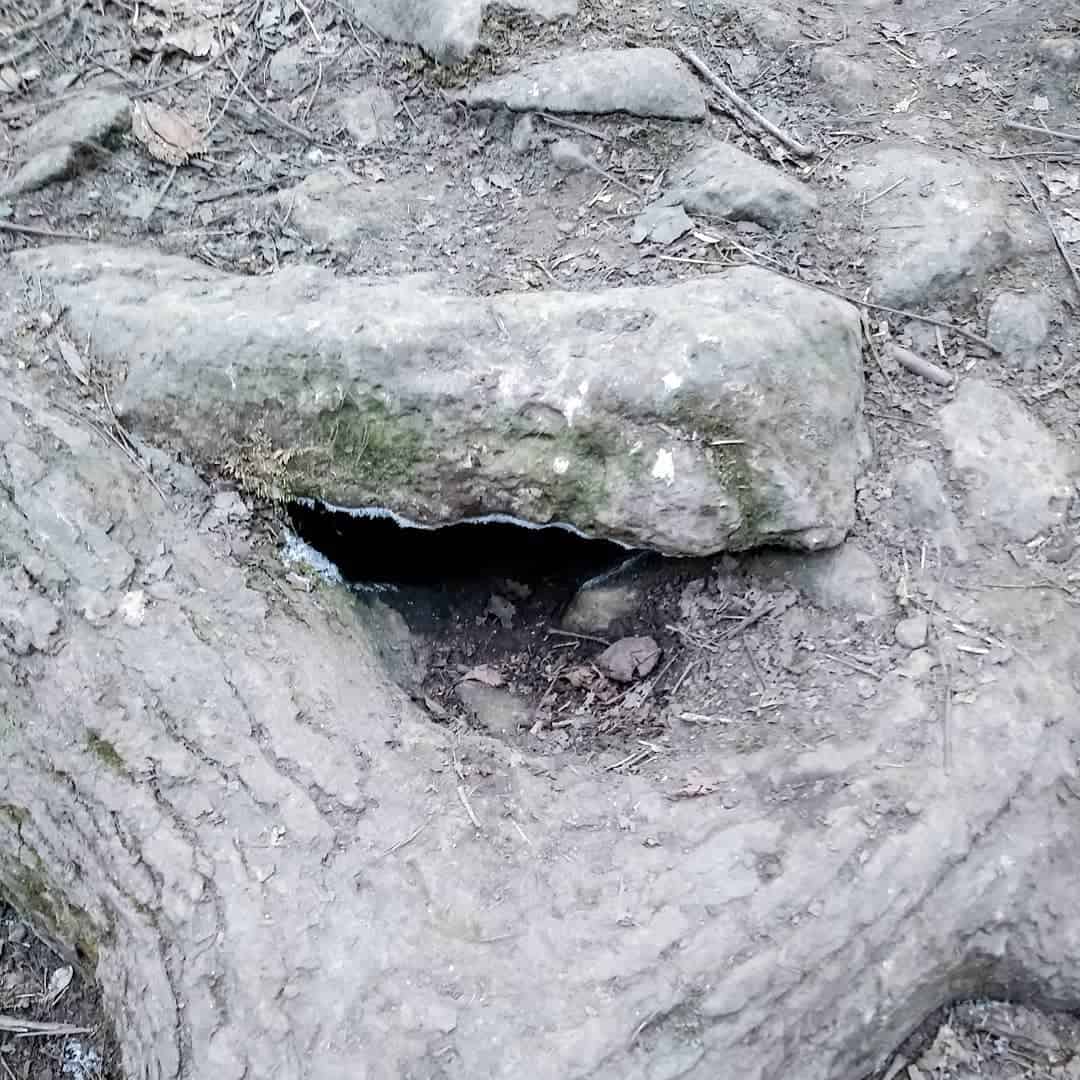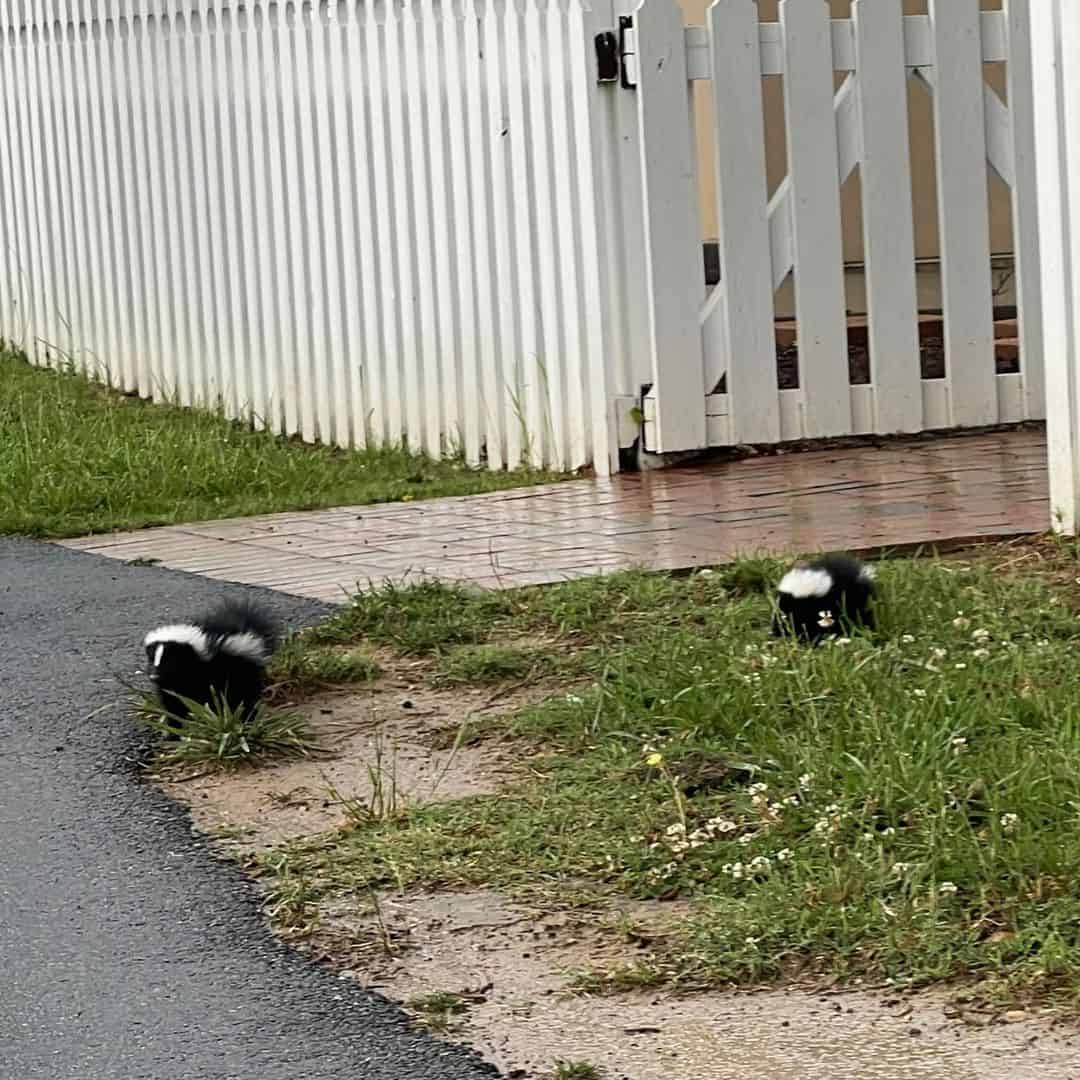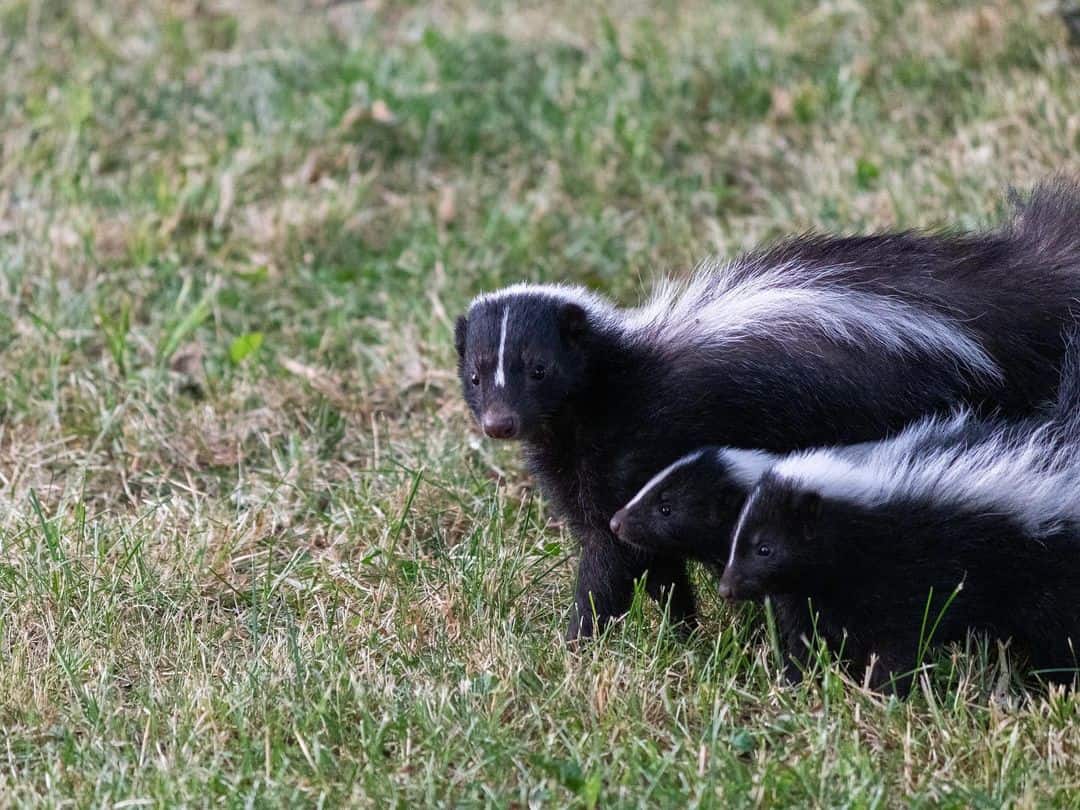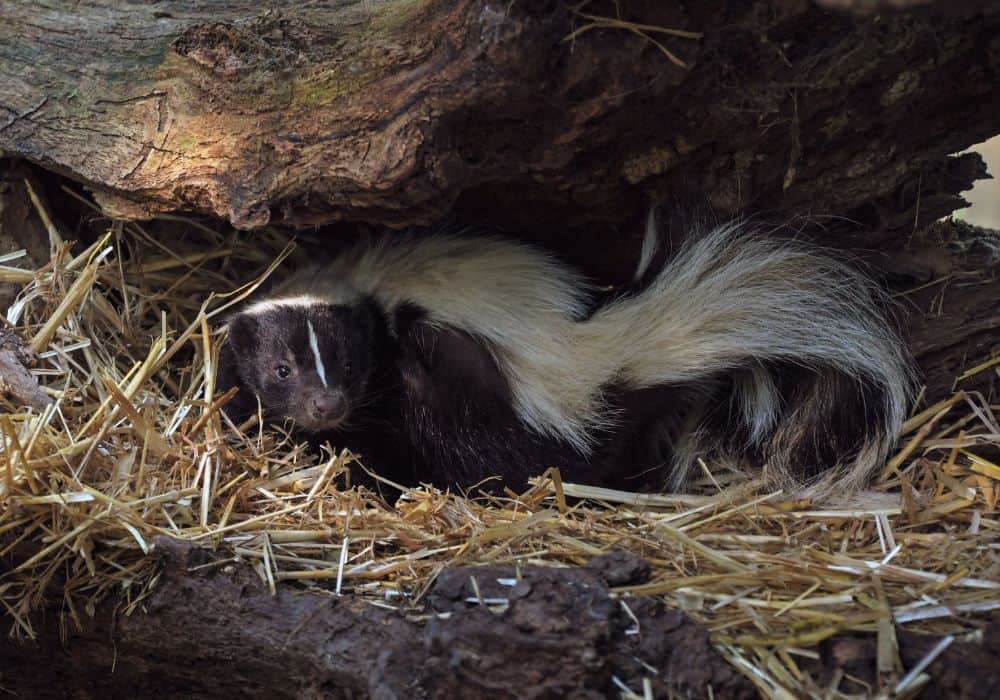Skunks might look small and cute, but in reality, these troublemakers are masters of chaos. Not only do they wreak havoc on properties, but stir up emotional distress through their unpleasant, lingering odor. Besides, these creatures can spread the dreaded rabies to you and your beloved pets.
Skunks usually prefer living in the wild, but occasionally they might venture into urban and suburban settlements in search of shelter and food.
When this happens, skunks may establish their dens in barns, under buildings, attics, and other inconspicuous locations in your yard. Since skunks are nocturnal and tend to avoid humans, their invasion might catch you completely off guard.
But, fear not, this article dives into the world of skunk dens and how to identify them. You will also learn the reasons these pesky pests venture into your property and how to get rid of them.
What Attracts Skunks to Your Home?
1. Food Aroma
Skunks have a keen sense of smell and an insatiable appetite. Because of this, they can be drawn to the tempting scent of your delicious meals wafting through the air. But it doesn’t stop there! Their finely tuned noses can detect enticing odors coming from your trash cans (garbage bins) or the allure of decaying matter.
2. Shelter and Warmth
Your home can provide an ideal refuge for skunks seeking shelter from adverse weather and lurking predators, i.e. coyotes and foxes. These resourceful pests can nest deep within the cozy confines of your basements or in the gaps beneath your porch or deck.
3. Easy Access
Skunks are tricky creatures with a knack for exploiting your home’s external vulnerabilities. These creatures can discover unsecured openings that might provide them an easy way to explore every nook and cranny of your home. From gaps in foundation to uncapped chimneys, these invaders waste no time in seizing the opportunity to venture into your territory
4. Attractive Landscaping
Yes! Your beautifully manicured yard may attract skunks. The lush vegetation and garden beds teeming with grubs or fallen fruits entice these clever foragers to venture closer to your home.
5. Water Sources
Like any other living creature, skunks require water to survive. Therefore, if you have an uncovered pool or leaky outdoor faucets, these cunning infiltrators might be drawn to them.
5 Signs of A Skunk Den

Image Credit: the_gracefilled_life
Now that you know what attracts skunks to your property, it’s time to learn about the telltale signs of skunk dens.
True, these mischievous animals are masters of disguise, but they often leave behind subtle clues, which sell them away. However, only an individual with an observant eye can identify these clues. So, what are they?
1. A Pungent Odor
If you suddenly find yourself assaulted by an overwhelmingly foul smell reminiscent of rotten eggs or sulfur, chances are you’re close to a skunk den. Skunks have scent glands that produce a lingering, pungent odor to keep invaders and predators away.
But here’s something interesting:
Skunks can only produce a limited amount of spray at a time. For this reason, these animals save their spray as a last resort. If they encounter a potential threat, skunks will hiss, raise their tails or stomp the ground to appear scary.
Another thing, skunk odors or sprays are sometimes acidic and they might cause intense irritation and burning on exposed skin. If it gets into your eye, the spray can trigger temporary blindness.
In case a skunk sprays you or your pet, you can use the following recipe to eliminate the bad odor.
- 1 quart of 3 percent hydrogen peroxide
- ¼ cup of baking soda
- One tablespoon of liquid dish soap
Mix these ingredients and apply to your skin or your dog’s fur for 5 minutes, then rinse. If the smell persists, re-apply the mixture. This chemical solution will break down the structure of the smell compounds and make them easy to wash away.
What about tomato juice?
Well, that is just a myth. The juice does not remove the unpleasant smell, so don’t waste your time buying it.。
2. Frequent Nighttime Activities
Skunks are nocturnal creatures, conducting most of their affairs at night. So, if you notice increased movement and rustling sounds around dawn or dusk, chances are skunks have established their den in the vicinity.
3. Disturbed Earth and Digging
Skunks are skilled excavators, using their strong front claws to dig burrows for shelter and protection.
They often create multiple entry points to their dens, allowing for easy access and escape routes. So, if you notice disturbed patches of earth or small holes in your yard, or damaged plants, most likely there’s a skunk den nearby.
4. Tracks, Footprints, and Droppings
Skunk footprints and droppings in your backyard could also point to a den nearby.
These creatures have a unique paw print with five toes and claw marks. Therefore, look for these on muddy or soft grounds near potential den areas.
Also keep an eye out for small, cylindrical droppings(scant) with remains of insects or seeds.
5. Damage to Gardens and Lawns
Skunks might trample and disturb your garden plants and green lawn when seeking food sources such as grubs, insects, or fallen fruits.
If you notice a sudden increase in damaged plants, upturned soil, or missing produce in your garden, it could be a sign that skunks are foraging in your area.
Effective Ways to Repel Skunk from Your Home

Image Credit: isleofwightcountymuseum
Once a skunk establishes or finds potential in your home, it’s usually permanent. That means it’s hard to get rid of these relentless invaders. However, it’s not impossible.
There are a few effective strategies you can implement to defend your domains against these visitors.
1. Use of Aromatic Repellents
Skunks have a strong sense of smell, which makes them extremely sensitive to certain scents. Below are a few natural repellants you can use against skunks and other small rodents:
- Cayenne pepper
- Citrus peels
- Dog, coyote, bobcat, or fox urine
- Eucalyptus oil
- Garlic
- Peppermint
- Cinnamon
- Jalapenos
Additionally, you can use other overpowering smells produced by house deodorizers to repel skunks. The scent of these products will irritate their acute sense of smell, forcing them to seek shelter somewhere else.
Experts also recommend using mothballs, vinegar, or ammonia to discourage skunks from your garden.
2. Installing Motion-Activated Lights and Sprinklers
Skunks prefer to roam in the darkness in a quiet, undisturbed environment while foraging.
Fortunately, you can install motion-activated lights and sprinkles in your yard to create an unwelcome environment for skunks. The sudden bursts of light or water will startle and deter them from entering your territory.
3. Secure Your Waste and Food Sources
Skunks are opportunistic scavengers and are often attracted to easily accessible food. You can starve them by tightly sealing garbage lids and keeping any pet food or bird feeders securely indoors. Also, ensure your yard is tidy to remove potential hiding spots for skunks.
4. Eliminating Hiding Spots
Skunks are notorious for seeking shelter in dark and secluded areas. So, consider removing or securing potential hiding spots such as woodpiles, dense vegetation, or crawl spaces under your porch or deck. By doing so, you can eliminate suitable hiding spots and discourage skunks from settling anywhere in your home.
5. Erect a Fence

Image Credit: t6ichris
Another effective way to keep skunks away is to put up a fence. Whether you use a chicken wire or hardware cloth, ensure the fence extends 3 to 4 ft underground to prevent these pests from burrowing underneath and gaining access to your property. It should also be high enough to fend off climbing skunks.
If you want to take things a notch higher, install an electric fence to deter skunks and other invaders like foxes, coyotes, squirrels, etc.
6. Seal Entry Points
Since skunks can squeeze through small openings, inspect your foundation, walls, and vents for gaps or cracks. Seal off potential entry points with sturdy materials like steel mesh and caulk to prevent skunks from creating dens in these areas. Also, secure open areas above windows and doors with a screen.
7. Install Underground Barriers
By now, it’s clear skunks like digging. So, the best way to shield these creatures from burrowing under your shed or porch is to install an underground barrier. You can bury a wire mesh or hardware cloth approximately 1ft deep around your perimeter to deter skunks from accessing your favorite spots. Also, remember to mow your lawn, remove any debris or piles of leaves, and fill in any holes or gaps in the ground that may serve as potential skunk hideouts.
8. Consulting a Professional
Sometimes, skunks may persist in invading your space despite your best efforts. In such a case, seek professional help from your local wildlife control department. Experts from such organizations will handle the skunk removal. They will also offer you a long-term solution to prevent future infestation.
Bottom Line
Dear reader, that’s all for today! We know this is a lot of information to take in, but now you’re equipped with the knowledge to identify potential skunk dens or hide out on your property
On top of that, we have provided you with several practical measures you can take to discourage skunks from transforming your tranquil home into their shelter.
But remember, these unwelcomed visitors are resilient and persistent and will not give up their comfy dens easily. So, consider combining these strategies for the best result.
That said, go forth and reclaim your territory from these intruders once and for all. If you need any further help, feel free to reach out through the comment section.
